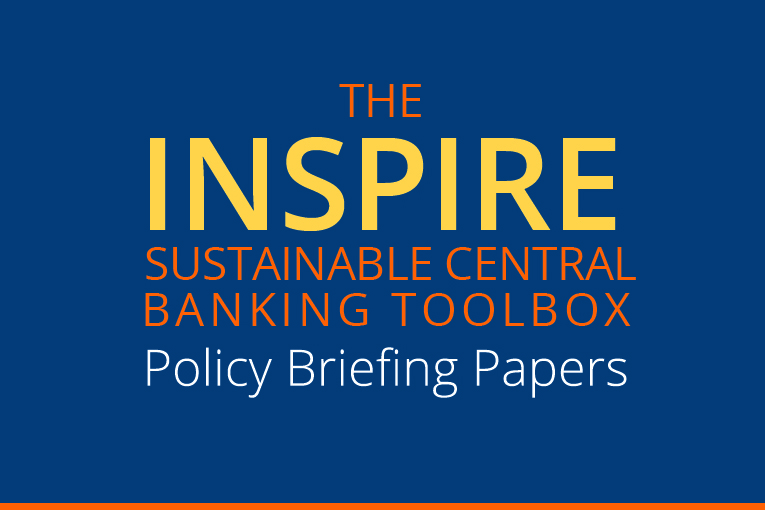Central banks and climate-related disclosures: applying the TCFD’s recommendations

Download
INSPIRE Central Banking Toolbox – Policy Briefing no. 3
Measuring and reporting – or disclosing – climate-related risks and opportunities is a key step for central banks as they address how climate issues impact their price and financial stability mandates, as well as their own operations.
This paper reviews the recommendations of the Task Force on Climate-related Financial Disclosures (TCFD) and their application by central banks to date. It also considers potential enhancements for central banks’ climate disclosures and their possible implications for the wider financial system.
Main messages
- The TCFD was established to guide financial institutions in making effective climate disclosures. In 2017, it released recommendations for doing so, and these are considered the preferred framework.
- The application of TCFD recommendations by central banks to date has been limited, but more are making commitments to increase their climate-related disclosures and apply the recommendations.
- The development of high quality, reliable, comparable and transparent climate disclosures can support decision-making and enable better understanding of the implications of climate change for central banks.
- Central banks can lead by example by demonstrating lessons learned from their own climate-related disclosures to other financial institutions and by using their influence over the financial rulebook to build the broader system architecture.
- The actions of central banks shape markets, so the system-wide implications of their actions need to be considered. These peculiarities call for more specific guidance for central banks on their TCFD disclosures, as the authors outline.
Recommendations
- Central banks should act boldly and lead by example with high quality disclosures that improve market transparency and support the net-zero transition.
- The TCFD recommendations are principles-based and allow for flexibility in their application, so central banks should apply them based on their own mandates and financial and operational framework to address the most relevant and material areas of their work.
- A progressive approach to developing climate-related disclosures should be adopted in terms of the type and level of granularity of the information disclosed, recognising that data and methodologies will improve over time.
- Disclosures regarding estimates should be accompanied by detailed explanations of the limitations, the assumptions and the data used.
- Central banks need to develop the necessary technical expertise and resources (such as systems and data) to provide climate-related disclosures. A robust internal governance process and buy-in from senior stakeholders are also important factors to the process.
This paper is part of the INSPIRE Sustainable Central Banking Toolbox, which is designed to support central bankers and financial supervisors in calibrating monetary, prudential and other instruments in accordance with sustainability goals as they address the ramifications of climate change and other environmental challenges. The papers have been written and peer-reviewed by leading experts from academia, think tanks and central banks and are based on cutting-edge research, drawing from best practice in central banking and supervision.

